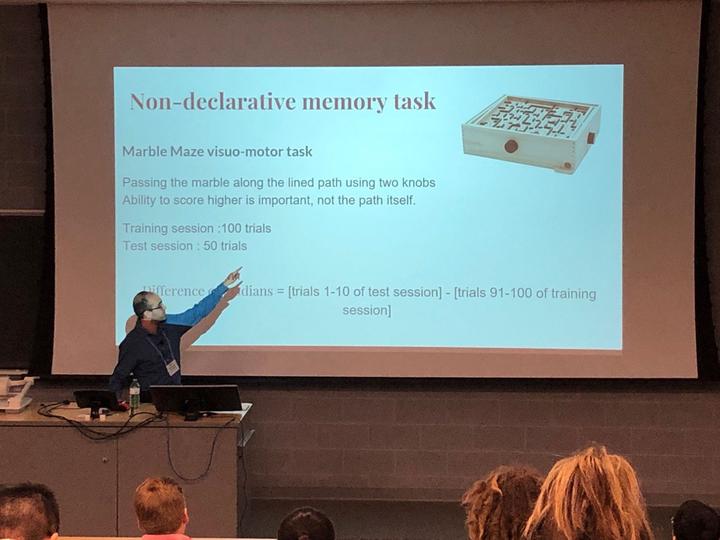
Abstract
Numerous studies have reported that, compared to an equivalent period of wakefulness, post-training sleep (overnight or brief daytime naps) benefits memory consolidation. However, most investigations have employed various forms of “active waking” (e.g., videos, computer games, physical exercise, regular daily activities) as a comparison condition for sleep, while few studies have examined the role of “quiet waking” in memory consolidation, even though some of the EEG oscillations during quiet waking resemble those present in sleep (e.g., θ activity). Here, we compared the consolidation of declarative (word pair-associates) and non-declarative (marble maze visuo-motor task) learning over a 60-min time interval (with continuous EEG monitoring) filled with either (A) napping; (B) active-waking (watching a video); or (C) quiet-waking (self-guided meditation). Preliminary analyses indicate better recall performance following quiet-waking and napping in the declarative task compared to active waking. For nondeclarative learning, recall performance after quiet-waking and napping without entering slow-wave sleep (SWS) was better than that after active waking or napping with SWS. Together, these results provide evidence that some forms of quiet waking (here: self-guided meditation) can exert beneficial effects on memory consolidation that are similar to those seen with sleep (supported by NSERC).
Slides can be added in a few ways:
- Create slides using Wowchemy’s Slides feature and link using
slidesparameter in the front matter of the talk file - Upload an existing slide deck to
static/and link usingurl_slidesparameter in the front matter of the talk file - Embed your slides (e.g. Google Slides) or presentation video on this page using shortcodes.
Further event details, including page elements such as image galleries, can be added to the body of this page.